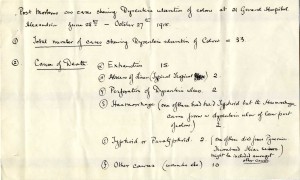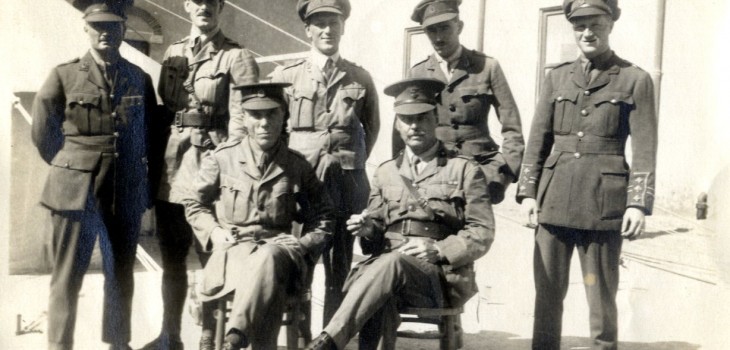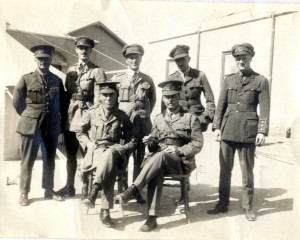Last week, an article was published in the Lancet by a team from the Wellcome Trust Sanger Institute and the London School of Hygiene & Tropical Medicine, regarding using a bacterial sample from a World War I soldier to uncover useful new information about dysentery, a disease that kills hundreds of thousands of children under five each year in developing countries. See more on this at: http://www.lshtm.ac.uk/newsevents/news/2014/ww1_soldier_dysentry.html#sthash.ELO8gWcs.dpuf
The Ross Collection in the Archives, holds material on dysentery during the First World War. Sir Ronald Ross was the discoverer of the mosquito transmission of malaria and the first Briton to be awarded the Nobel Prize for Medicine.
In July 1915, Ross was appointed Consulting Physician on Tropical Diseases and was sent to Alexandria for four months to research disease among the troops in the Dardanelles. In his report at the end of his service, he states that on visiting seven large hospitals in Alexandria, nearly all medical cases belonged to five groups of diseases usually prevalent in British troops in warm countries: typhoid, jaundice, malaria, dysentery and mixed cases. Of these, dysentery (an infection of the intestines that causes diarrhoea containing blood and mucus) was the principal cause of sickness in the Mediterranean Expeditionary Forces. Figures from a report show that from 29 August to 9th October 1915 there were 32,528 cases of diarrhoea and dysentery with 231 deaths.

Post mortems on cases showing dysenteric ulceration of colon at 21 General Hospital, Alexandria June 28-October 27 1915 by George Bertram Bartlett
He found that many of the cases were amoebic dysentery which meant prolonged illness and cases of liver abscesses. Ross instructed that all patients showing dysenteric symptoms at the front be given emetine and this resulted in patients reaching Alexandria in a less critical condition. He also worked with his assistant, David Thomson on the survival capacities of intestinal amoebae in sun exposed sand.
For further information, please contact the Archives Service








